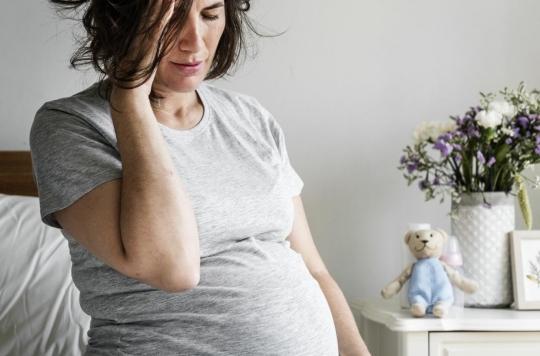New research based on the birth of nearly 500,000 babies shows that fainting episodes during the first trimester of pregnancy can be a harbinger of problems like prematurity and low birth weight.

Should syncope occurring in pregnant women be considered, like pre-eclampsia and gestational diabetes, as a pregnancy-induced disease?
While fainting is still considered a common but harmless symptom of pregnancy today, a new study by Canadian researchers and published in the Journal of the American Heart Association shows on the contrary that they can be harbingers of health problems for the mother and the baby, especially when they occur during the first trimester.
A higher risk of prematurity
To reach this conclusion researchers from the Universities of Alberta and Calgary examined the birth records of 481,930 babies born in Alberta between 2005 and 2014, as well as the medical records of mothers for a year after delivery to determine the frequency, timing and outcome of fainting episodes. 1% of pregnant women have fainted at least once, and about a third of them during the first three months of pregnancy.
Among those pregnancies where syncope occurred during the first trimester, the research team observed various problems at birth, including a higher rate of prematurity, an increase in heart problems and low birth weight of the newborns, in particular when their mothers had fainted more than once.
Better manage discomfort during pregnancy
Vagal discomfort, also called fainting or syncope, is a transient loss of consciousness, not serious in the majority of cases, due to a sudden and temporary drop in blood circulation in the brain.
The cause: the vagus nerve, a long nerve bundle that runs from the stomach to the brain, passing through the heart. It is an essential link in the parasympathetic system, responsible for putting the body to rest in the absence of danger or sustained activity. Crowds, heat, stress or even dehydration are all factors identified as being able to cause syncope, which is more common in pregnant women due to pregnancy hormones. These can cause the heart rate and blood supply to increase, while the blood vessels relax, which can lead to dizziness and fainting.
However, if the discomforts are more frequent during pregnancy, their importance should not be minimized. Padma Kaul, an epidemiologist at the University of Alberta and lead author of the study, also advises pregnant women prone to fainting to talk to their doctor. She also recommends that syncope be added to the list of pregnancy-induced conditions that can be considered warning signs for women’s health.
“Pregnancy is a natural stress test for a woman’s body. Fainting during pregnancy can identify women at higher risk for cardiovascular complications,” she explains.
However, says Padma Kaul, while the study does show a correlation between fainting and health problems in mothers and babies, it cannot identify the causes or pre-existing conditions that could be responsible. “It’s a chicken-and-egg problem. The associations (between health problems and syncope, editor’s note) must be the subject of a more in-depth study”, recognizes the researcher.
.

















